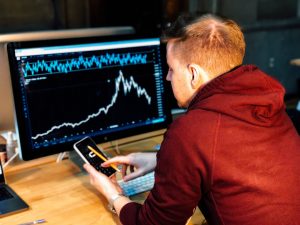Dealing desk forex is a type of brokerage service offered by forex brokers. In this type of service, the broker acts as an intermediary between the traders and the liquidity providers. The broker provides a platform for the traders to trade forex, and when a trade is executed, the broker matches it with a liquidity provider who is willing to take the opposite side of the trade. In this way, the broker earns a commission or a spread on each trade.
The dealing desk model is also known as market maker or MM. The broker sets the bid and ask prices for the currency pairs based on the quotes received from the liquidity providers. The bid-ask spread is the difference between the buy and sell prices, and it represents the broker’s profit. The spread can vary depending on the market conditions, the currency pair, and the size of the trade.
The dealing desk model has some advantages for the traders. First, the broker guarantees the execution of the trades, as long as there is a liquidity provider willing to take the other side. This means that the trader can enter and exit the market at any time, without worrying about liquidity issues. Also, the broker can offer fixed spreads, which means that the spread remains constant regardless of the market conditions. This can be helpful for traders who want to plan their trading strategy and manage their risks more effectively.
However, dealing desk forex also has some disadvantages. One of the main concerns is the conflict of interest between the broker and the traders. Since the broker acts as a market maker, it can manipulate the prices and the spreads to its advantage. For example, the broker can widen the spread during news releases or volatile market conditions, which can make it harder for the trader to make a profit. Also, the broker can trade against the clients’ positions, which means that it can benefit from the clients’ losses.
Another issue with dealing desk forex is the lack of transparency. Since the broker is the counterparty to the trades, it can choose which liquidity providers to use and at what prices. This means that the trader may not know the exact source of the liquidity, and whether it is the best available price in the market. Also, the broker may not disclose its trading practices or its risk management policies, which can make it harder for the trader to assess the broker’s reliability and credibility.
To address these concerns, some forex brokers have adopted the no dealing desk model, also known as the ECN or STP model. In this model, the broker simply matches the traders’ orders with the best available prices from the liquidity providers, without intervening in the pricing or the execution. This means that the spreads can be tighter and the prices more transparent, but the execution may not be guaranteed in all market conditions.
In conclusion, dealing desk forex is a type of brokerage service that provides a platform for traders to trade forex, while the broker acts as a market maker and matches the trades with liquidity providers. This model has some advantages, such as guaranteed execution and fixed spreads, but also some disadvantages, such as conflicts of interest and lack of transparency. Traders should carefully consider their trading needs and preferences, as well as the broker’s reputation and regulatory compliance, before choosing a dealing desk forex broker.





